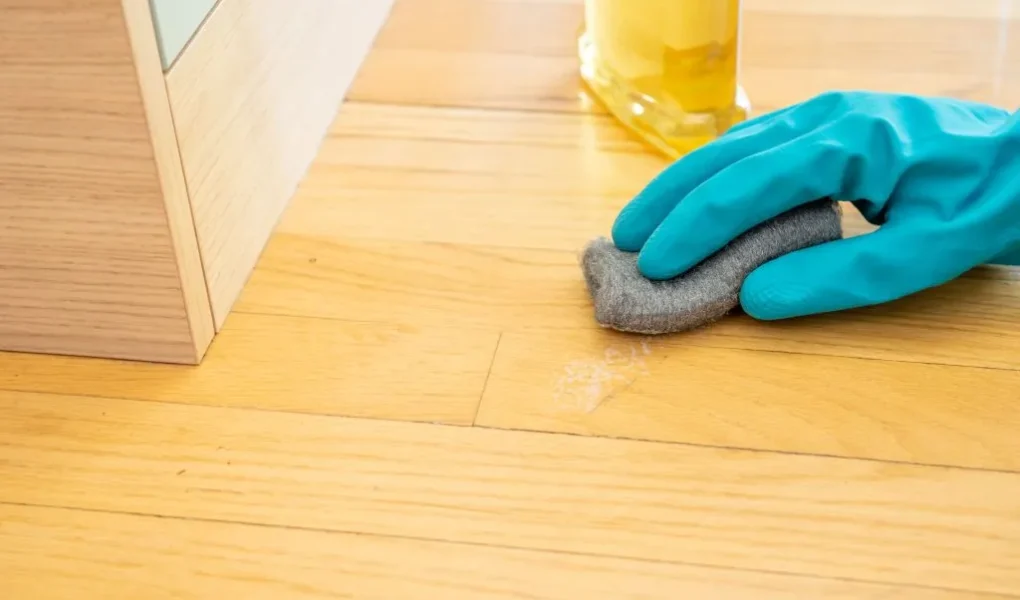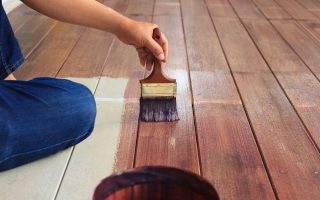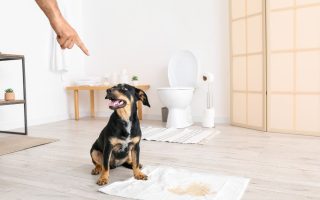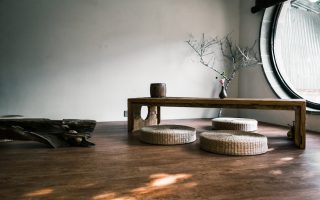If you’ve ever searched for DIY cleaning tips, chances are you’ve encountered vinegar as a magical, multipurpose cleaner. From sparkling windows to gleaming kitchen counters, vinegar is often hailed as an eco-friendly superhero. But when it comes to hardwood floors, the question arises: can you mop hardwood floors with vinegar? To clear up the confusion, we’ve gathered expert opinions, practical tips, and essential precautions to help you maintain stunning hardwood floors without risking damage.
Is Vinegar Safe for Hardwood Floors?
Vinegar, known for its acetic acid content, is widely used in homemade hardwood floor cleaner recipes because it cuts through grime effectively. While vinegar is a natural disinfectant and can remove dirt and residue, it’s important to understand its impact on hardwood finishes.
Most hardwood floors have a polyurethane finish, which acts as a protective barrier. According to flooring expert Emma Barton from Flooring UK, “While vinegar diluted correctly is typically safe, frequent use or overly strong solutions can degrade your floor’s finish over time” (source: Flooring UK).
Pros and Cons of Mopping Hardwood Floors with Vinegar
Pros
- Natural and Non-toxic: Vinegar is eco-friendly and safe around children and pets.
- Cost-effective: Compared to commercial cleaners, a vinegar and water floor cleaner is inexpensive and easy to prepare.
- Effective Cleaning: Its acidic properties dissolve stubborn dirt, leaving floors clean and residue-free.
Cons
- Potential Finish Damage: Undiluted or excessively strong vinegar solutions can wear down floor sealants and finishes, especially polyurethane coatings.
- Moisture Damage Risk: Hardwood floors are sensitive to water; improper mopping techniques may introduce excess moisture, causing boards to warp or discolour.
Expert Recommended Vinegar Solution for Wood Floors
If you prefer a DIY wood floor cleaning solution, experts recommend diluting vinegar to minimise risk. The ideal mixture is about ½ cup of distilled white vinegar per gallon (3.8 litres) of warm water. According to cleaning expert Natalie Bell from The Spruce, “This dilution strikes a balance, effectively cleaning without jeopardising the integrity of your wood floor’s finish” (source: The Spruce).
How to Mop Hardwood Floors Naturally with Vinegar: Step-by-Step
Here’s a simple, expert-backed method for using vinegar safely:
Step 1: Clear Debris and Dust
Before mopping, sweep or vacuum to remove loose dirt, crumbs, and debris to prevent scratching the floor surface.
Step 2: Prepare the Vinegar Solution
In a bucket, mix ½ cup white vinegar with approximately one gallon (3.8 litres) of warm water. Never exceed this vinegar ratio, as overly acidic solutions risk damaging the floor’s finish.
Step 3: Mop Carefully with a Microfiber Mop
Use a microfiber mop or cloth, soaking it lightly in the vinegar solution. Always wring the mop thoroughly to avoid excess water. Microfiber mops are recommended by cleaning professionals because they minimise moisture exposure and efficiently pick up grime.
Step 4: Dry the Floor Immediately
Following the mopping process, immediately dry your floor using a clean, dry microfiber cloth. This step reduces moisture damage risks and prevents streaking, ensuring a streak-free shine.
When Not to Use Vinegar on Hardwood Floors
Vinegar cleaning is beneficial for many hardwood floors, but not universally suitable. Avoid vinegar if:
- Your floor’s finish is wax-based. Acetic acid in vinegar can dissolve wax, stripping your floor’s protective layer.
- Your floors are significantly worn, scratched, or damaged. Vinegar can penetrate deeper into damaged areas, causing more harm than good.
Instead, seek specialised pH-neutral cleaners specifically formulated for hardwood floors with damaged or delicate finishes.
Alternatives to Vinegar for Hardwood Floor Maintenance
For those cautious about vinegar, several eco-friendly hardwood floor cleaning options exist:
- Commercial pH-neutral cleaner: Formulated explicitly for wood floors, these cleaners gently remove grime without affecting finishes.
- Bona Hardwood Floor Cleaner: Widely recommended by flooring manufacturers for effective, residue-free cleaning.
- Warm water with mild dish soap: Just a few drops can safely clean sealed hardwood floors without harsh chemicals.
Expert Tips on Hardwood Floor Maintenance
Maintaining stunning hardwood floors extends beyond just choosing the right cleaner. Flooring experts consistently highlight the importance of preventive care:
- Use area rugs and mats: Place mats at entryways to minimise dirt tracking.
- Regular dusting: Frequent dusting and vacuuming prevent dirt build-up, reducing the need for intense cleaning.
- Avoid harsh cleaning tools: Steel wool, abrasive pads, and steam mops are damaging to hardwood floors.
Regular maintenance not only prolongs your floor’s lifespan but also ensures minimal need for intensive cleaning routines.
Frequently Asked Questions (FAQs)
Can you use vinegar daily on hardwood floors?
While vinegar diluted correctly is generally safe, experts suggest limiting its use to occasional deep cleans, ideally no more than once weekly, to avoid gradually weakening the floor finish.
Does vinegar leave streaks on hardwood floors?
When properly diluted and wiped dry, vinegar solutions rarely leave streaks. If streaks occur, it usually indicates an overly strong solution or insufficient drying.
What type of mop is best for cleaning hardwood floors with vinegar?
Microfiber mops are highly recommended due to their gentle yet effective cleaning capabilities. They minimise moisture and protect delicate finishes.
Can vinegar remove stubborn stains from hardwood floors?
Vinegar can remove many surface stains, but deeply set or stubborn stains might require professional treatment or specialised wood floor cleaners.
Expert Verdict: Should You Mop Hardwood Floors with Vinegar?
According to flooring experts, vinegar can be safely used to clean hardwood floors, provided it’s diluted correctly and used sparingly. As cleaning specialist Sarah Evans notes, “Vinegar, when properly diluted, is safe and effective for occasional deep cleans. However, daily or excessive use can gradually dull or damage your floor’s finish” (source: Good Housekeeping).
Always consider your floor’s condition and manufacturer guidelines. If you’re unsure or concerned about potential damage, opt for a specialised hardwood floor cleaner or seek professional advice.
Final Thoughts: Balancing Natural Cleaning and Floor Care
While vinegar undoubtedly holds an honoured place in eco-friendly cleaning routines, the key to maintaining beautiful hardwood floors lies in moderation and proper dilution. Understanding the delicate balance between natural cleaning methods and potential damage prevention empowers homeowners to make informed choices.
By following expert-recommended practices, such as correct dilution, moisture control, and immediate drying, you can safely incorporate vinegar into your hardwood floor maintenance routine, ensuring both cleanliness and longevity. After all, your beautiful hardwood floors deserve care that’s both effective and gentle—exactly what a correctly used vinegar solution can provide.




